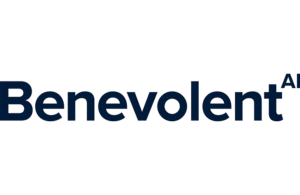 “Can we treat chronic inflammation in ulcerative colitis by reversing immune cell activation in colonic mucosa?” That’s an example of a biological question that the AI-enabled drug discovery firm BenevolentAI (AMS:BAI) would ask when exploring a new drug target.
“Can we treat chronic inflammation in ulcerative colitis by reversing immune cell activation in colonic mucosa?” That’s an example of a biological question that the AI-enabled drug discovery firm BenevolentAI (AMS:BAI) would ask when exploring a new drug target.
Incorporating a disease, sign, mechanism and tissue into a single question provides focal points for the company’s AI models to explore when generating target hypotheses, said Anne Phelan, chief scientific officer of Benevolent AI in a presentation at the Royal Society earlier this year.
BenevolentAI’s strategy involves a comprehensive understanding of the biological systems underlying various diseases, breaking down silos in clinical areas and tapping diverse multimodal data to discover novel therapeutic targets. For ulcerative colitis, the company’s AI models sift through vast amounts of scientific literature and data to spot promising targets and pathways that could potentially alleviate the chronic inflammation in the colonic mucosa associated with the condition.
Extracting insights
The approach offers hope in extracting actionable items from the overwhelming sea of data scientists continue to generate. “We are drowning in a sea of data and starving for knowledge,” Phelan said.
The growing amount of data, matched with ever-more powerful AI tools, makes it possible to ask unprecedented questions. “Now more than ever, we have the capacity to really ask drastically more complex questions and queries of the data at our disposal with real-time information,” Phelan added.
BenevolentAI’s focus is using AI to identify dysregulated biological systems and pathways that could be targeted for therapeutic intervention. “Our approach at Benevolent is to use AI and machine learning to interrogate the vast amounts of genomic, transcriptomic and proteomic data,” Phelan explained.
Phelan emphasized the importance of integrating different types of data to uncover new insights. For instance, she mentioned, “Our suite of algorithms enables us to predict targets based on this foundational data and knowledge graph.”
An iterative approach
Additionally, BenevolentAI’s platform allows for iterative learning, meaning that as new data and knowledge emerge, the AI models can refine their predictions and hypotheses, ultimately leading to more accurate and effective drug target identification. Phelan stated, “This allows the [intentions] of the scientists to be recorded within the platform, but it also creates a virtuous cycle of learning and decision making within or on the platform.”
In addition to the work on ulcerative colitis, Phelan shared several other examples of the AI-driven research at BenevolentAI, highlighting the versatility and potential of their platform to address complex and challenging diseases. She noted, “We’re looking at a disease agnostic format, we’re looking at modality agnostic assessments of targets, and it’s repeatable.”